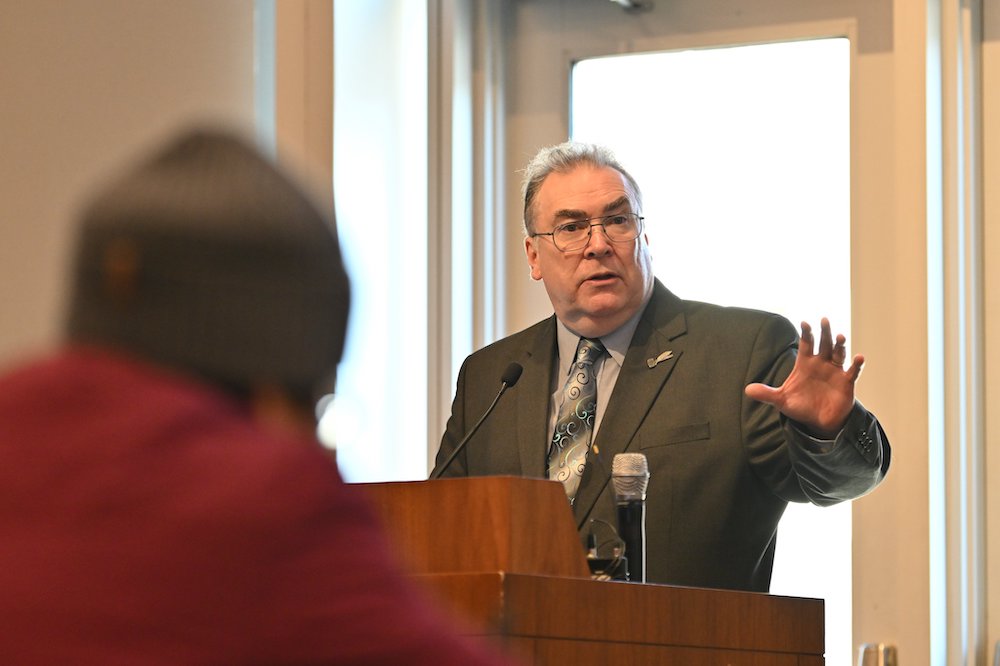
- Details
- By John Wiegand, Special to Tribal Business News
- Real Estate
As the former building commissioner for the City of Chicago and first Native American to hold that position, Matthew Beaudet (Montauk) has seen firsthand how effective building codes transform communities.
With a background spanning law, tribal government, and municipal leadership, Beaudet is bringing this expertise to Indian Country. As a founder of Native American Code Officials (NACO) — the first Indigenous chapter of the International Code Commission (ICC) — and his own consulting firm, Ádisóke Solutions, LLC, he hopes to guide tribes as they adopt building codes and regulations.
Beaudet spoke with Tribal Business News about his view of building codes and how they are a gateway to sovereignty, economic development and health across Indian Country. This interview has been edited for brevity and clarity.
What is the connection between building codes and sovereignty for Native communities?
One of the greatest exercises of sovereignty that any government can have is making their own standards. This is not taking sovereignty away from tribes. It’s not limiting their sovereignty. If anything, it’s enhancing it and exercising it. One of the members of (NACO) says sovereignty is like a muscle, you have to exercise it.
What are some of the apprehensions you’ve run into from tribes who are wary about adopting building codes?
I think the primary one is that “it’s the white man’s code and we don’t want it.” Codes are nothing new to us. Maybe it’s not written down as much as in other cultures, but we’ve always had our own codes. Just the power of writing it down so that everybody knows what your codes are when they come in. That’s the basis of exercising your sovereignty. You set the rules for your own territories and the expectations. Every tribe has a constitution. Every tribe has some form of civil code, some form of criminal code, some even have codes for businesses. Why not a building code?
I think it’s straightforward to conceptualize building codes’ impact on housing, but how are they related to economic development?
Codes are an economic development engine. One of the challenges of getting investment into Indian country is that a good investor will not go where there are no codes. They want to see that investment last and be sustainable. The same for tribes building something for their members and outsiders to visit. It has to be built right. No one wants to go to a museum or a casino with the roof leaking or where the floor is uneven or the ventilation is all messed up. Codes draw economic development in. Detractors will say, ‘If there are rules, then that costs more money and people won’t come.’ It’s actually the opposite. Codes scare away bad developers and bad contractors. They attract good developers, good contractors and good investors.
How flexible are the ICC Codes?
The ICC is basically a menu. They’re not offended if you don’t adopt it all. They didn’t get mad at me in Chicago for not adopting the whole thing. It really does draw investment from outside your community and it also bolsters your community because they’re now building to standards.
Does the ICC code accommodate for indigenous culture and building practices?
There are standards you can put into the tribal code and there’s stuff you can take out. You can’t put a sweat lodge under certain portions of the ICC, you just take those portions out because the ICC didn’t anticipate sweat lodges.
How do building codes support other tribal initiatives like elder care?
As a world now, we need to worry about aging in place. We need our elders in Indian Country to stay in their home. If they don’t, it takes a big physical and mental toll on them. The uniqueness of our elders is that the house where the elder is, that is the heartbeat of an Indian Community. That’s where our youth will go to keep the language and the culture alive. That’s where our adults stay grounded in the culture. Once we start removing elders from their homes, we’re doing irreparable harm to native culture.
You’ve mentioned workforce development, can you describe how building codes can build a workforce?
When you have codes, you actually have skilled workers doing the work. My father was a World War II veteran, he left high school to fight in the war. My mom was an orphan and didn’t graduate high school either. When I was young, there were eight of us in a one-and-a-half-bedroom apartment. My dad was working three low paying jobs. Then he got into the electrical apprenticeship program and it just changed everything. We went from there to a house. I got to go to college.
Within a single generation, his son became the building commissioner for one of the largest cities in the country. It just shows you (skilled trades) aren’t just jobs, they’re careers. Today’s trades people are tomorrow’s contractors. Then they become developers if they want.